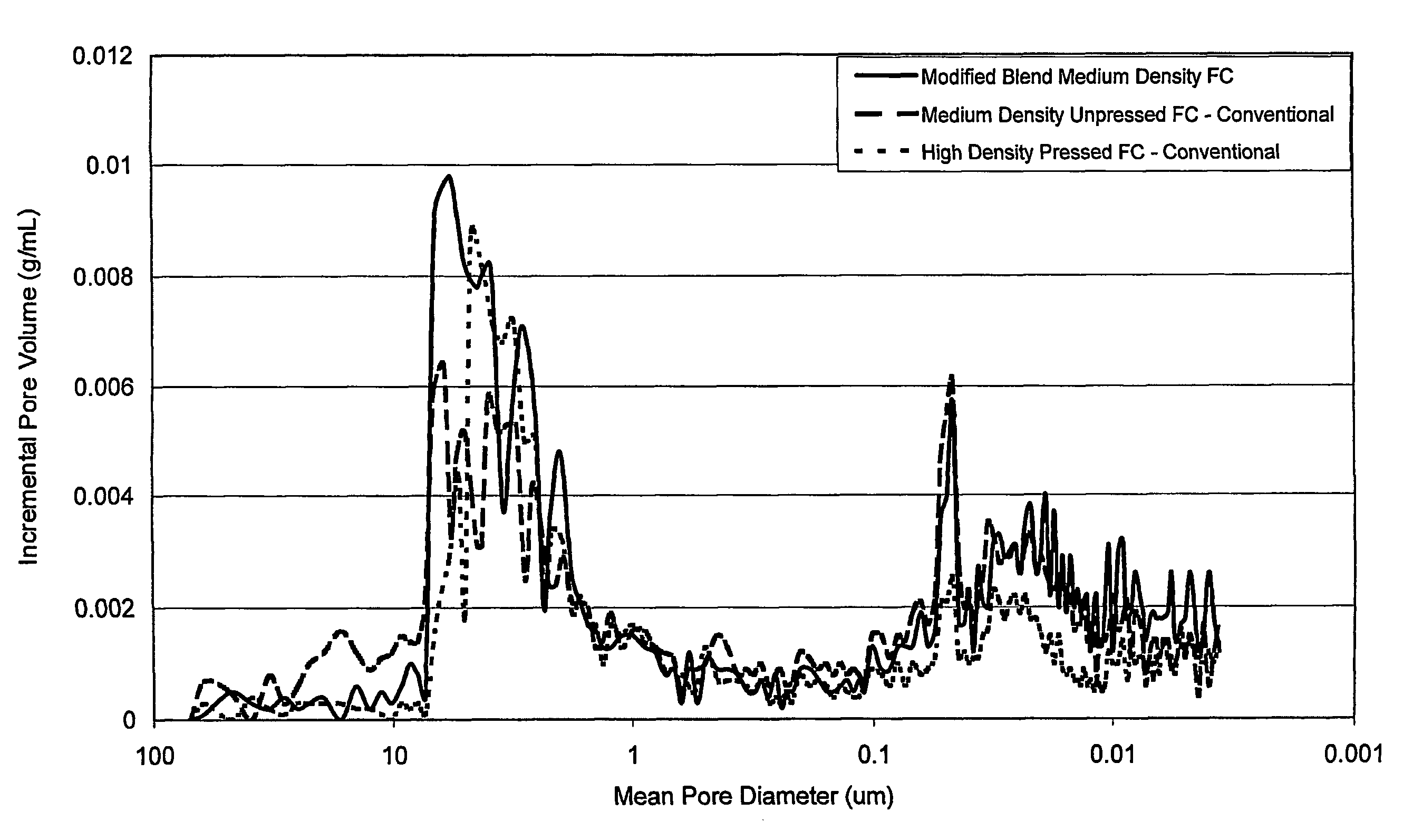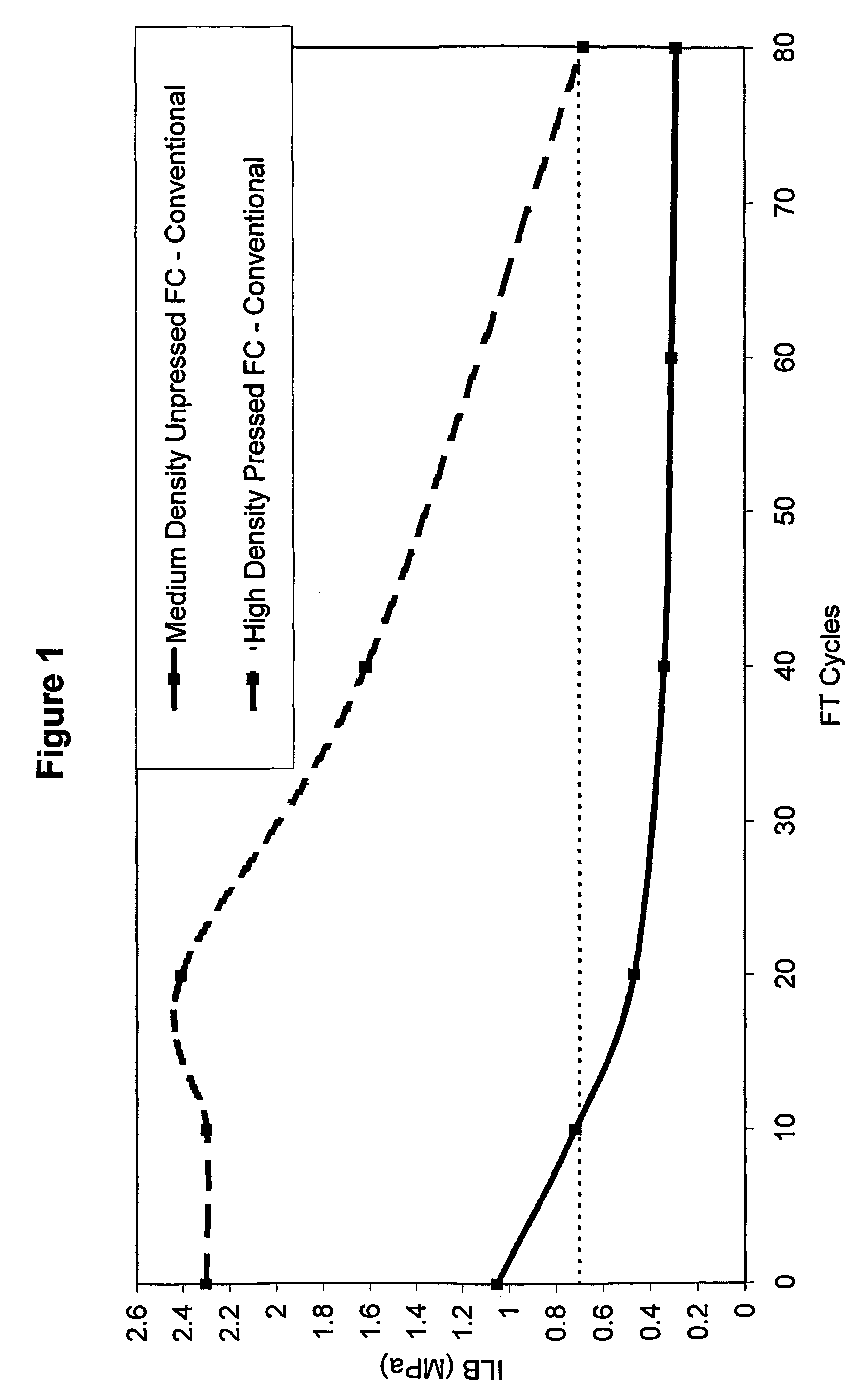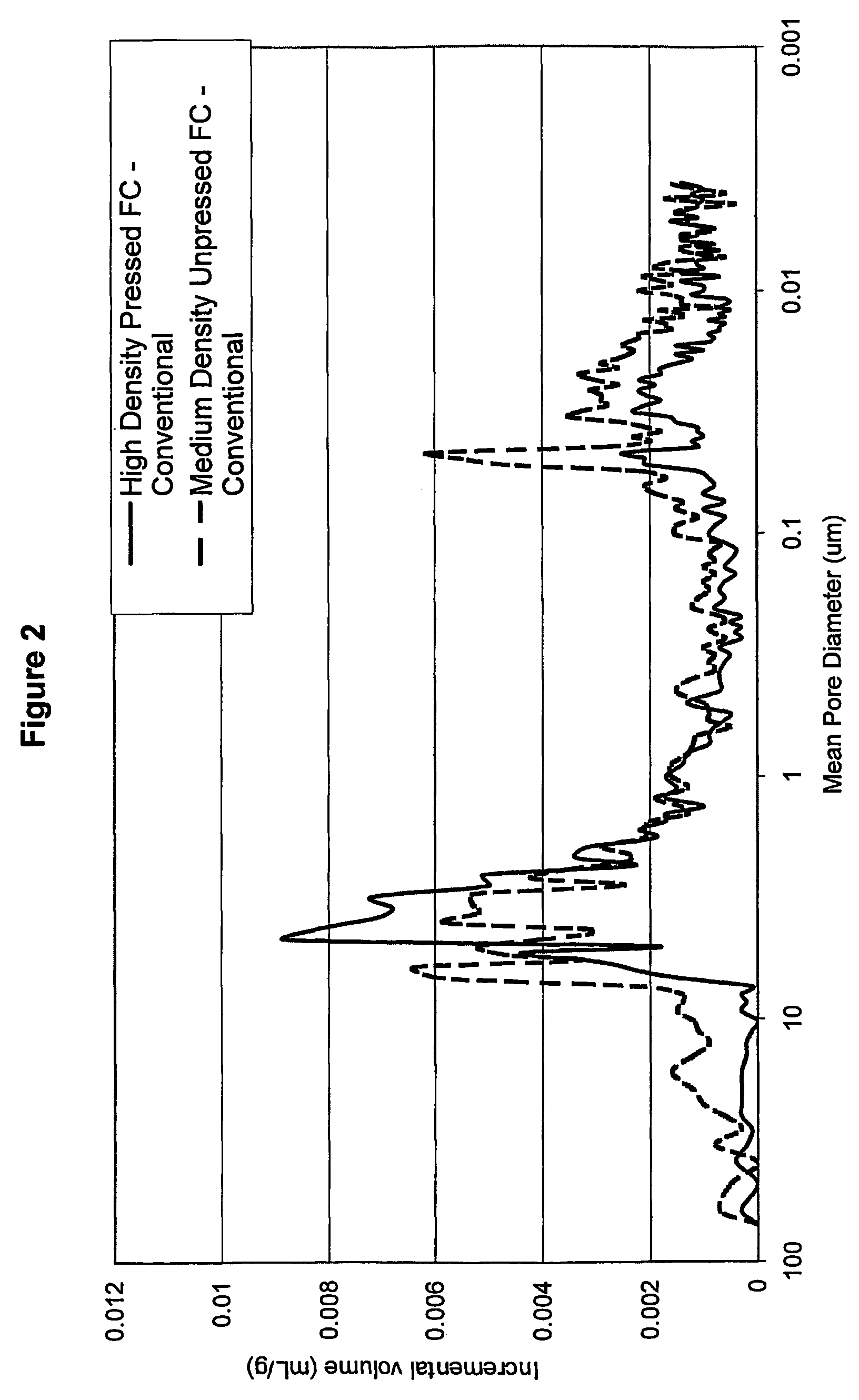Durable medium-density fibre cement composite
a technology of fibre cement and composite materials, which is applied in the direction of ceramicware, sustainable waste treatment, manufacturing tools, etc., can solve the problems of high capital and maintenance costs of production techniques, inability to maintain in-service performance, and inability to meet the requirements of use, so as to and improve the durability of frc products in a freeze/thaw environment.
- Summary
- Abstract
- Description
- Claims
- Application Information
AI Technical Summary
Benefits of technology
Problems solved by technology
Method used
Image
Examples
example 1
Lightly Pressed Medium Density Composite
[0068]In a first embodiment, a medium density composite product is produced in two stages. The first involves applying a density modifier to a conventional medium density FRC formulation to bring density down to the low density range, ie about 0.8 to 1.1 g / cm3 thereby achieving improved stress relaxation behaviour and workability.
[0069]In this embodiment, the density modifying agent is microspheres but other density modifiers may be used. Microspheres can be natural, synthetic or a by-product. The material can be crystalline but is more typically amorphous or glass. One preferred type of microspheres are hollow ceramic microspheres commonly known as cenospheres. Cenospheres are a coal ash by-product that is typically separated from fly ash by a floatation process where the spheres float to the surface of water from clarifiers, ponds or lakes. The microspheres are available, for example, under the names Extendospheres, Recyclospheres and Zeeosp...
example 2
Modified Formulation / Blend FRC Composite
[0100]As an alternative to the light pressing technique discussed above in example 1, in a second embodiment the properties of a low or medium density FRC product are altered by modifying the typical FRC composite formulation. This modification involves the addition of:
[0101]i) lignocellulosic fibres chemically treated with a water repellant agent,
[0102]ii) reinforcing fibers
and
[0103]ii) microfine siliceous material.
[0104]The lignocellulosic fibres suitable for use with the preferred embodiments of the present invention are chemically treated with a water repellent agent to impart hydrophoboicity. They are provided in an amount of 0.01% to 9% by total weight of composite solids and preferably in the 2 to 3% range.
[0105]Lignocellulosic fibres chemically treated with a water repellent agent to impart hydrophobicity, range: between about 0.01% to 9% by total weight of composite solids, preferably in the about 2% to 4% range.
[0106]The lignocellulo...
PUM
| Property | Measurement | Unit |
|---|---|---|
| density | aaaaa | aaaaa |
| density | aaaaa | aaaaa |
| density | aaaaa | aaaaa |
Abstract
Description
Claims
Application Information
 Login to View More
Login to View More - R&D
- Intellectual Property
- Life Sciences
- Materials
- Tech Scout
- Unparalleled Data Quality
- Higher Quality Content
- 60% Fewer Hallucinations
Browse by: Latest US Patents, China's latest patents, Technical Efficacy Thesaurus, Application Domain, Technology Topic, Popular Technical Reports.
© 2025 PatSnap. All rights reserved.Legal|Privacy policy|Modern Slavery Act Transparency Statement|Sitemap|About US| Contact US: help@patsnap.com



